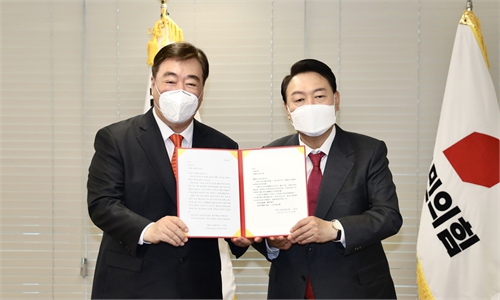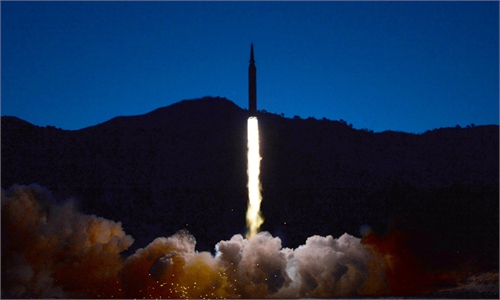N.Korea's latest test launch showcases capability in developing ICBMs as deterrent to US threat: analyst
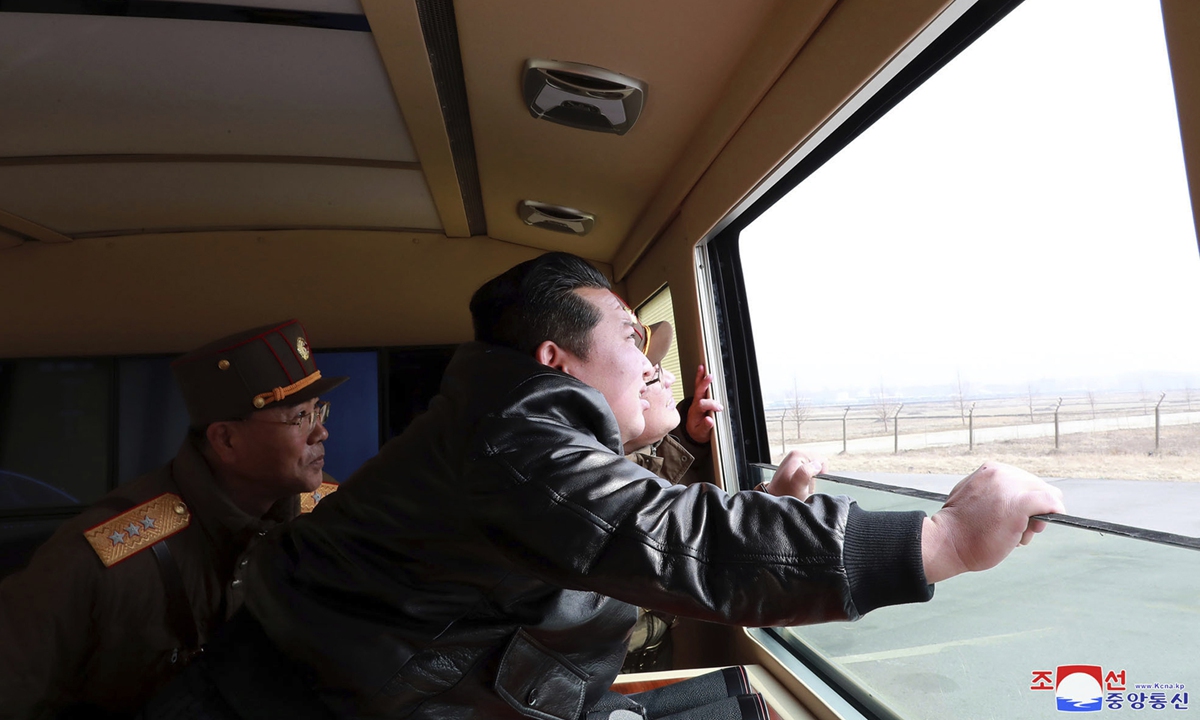
Photo: CFP
North Korea tested a new type of intercontinental ballistic missile (ICBM) Hwasongpho-17 on Thursday with its leader Kim Jong-un guiding the overall process of the test launch, North Korean state media reported on Friday. Analysts said that along with a series of missile launches since January, the test showed that the country has gained capability in developing ICBMs and is working to have asymmetric military capability to deal with threats from the US and Japan.
The missile, launched at Pyongyang International Airport, traveled up to a maximum altitude of 6,248.5 kilometers and flew a distance of 1,090 kilometers for 4,052 seconds before accurately hitting the pre-set area in open waters of the East Sea of Korea, Korean Central News Agency (KCNA) reported on Friday.
KCNA said that the new-type weapon system to be operated by the strategic forces of the DPRK "will creditably perform its mission and duty as a powerful nuclear war deterrent of putting under strict control the nuclear war threats and challenges against the DPRK, taking the initiative to cope with any military crisis and defending the security of the country."
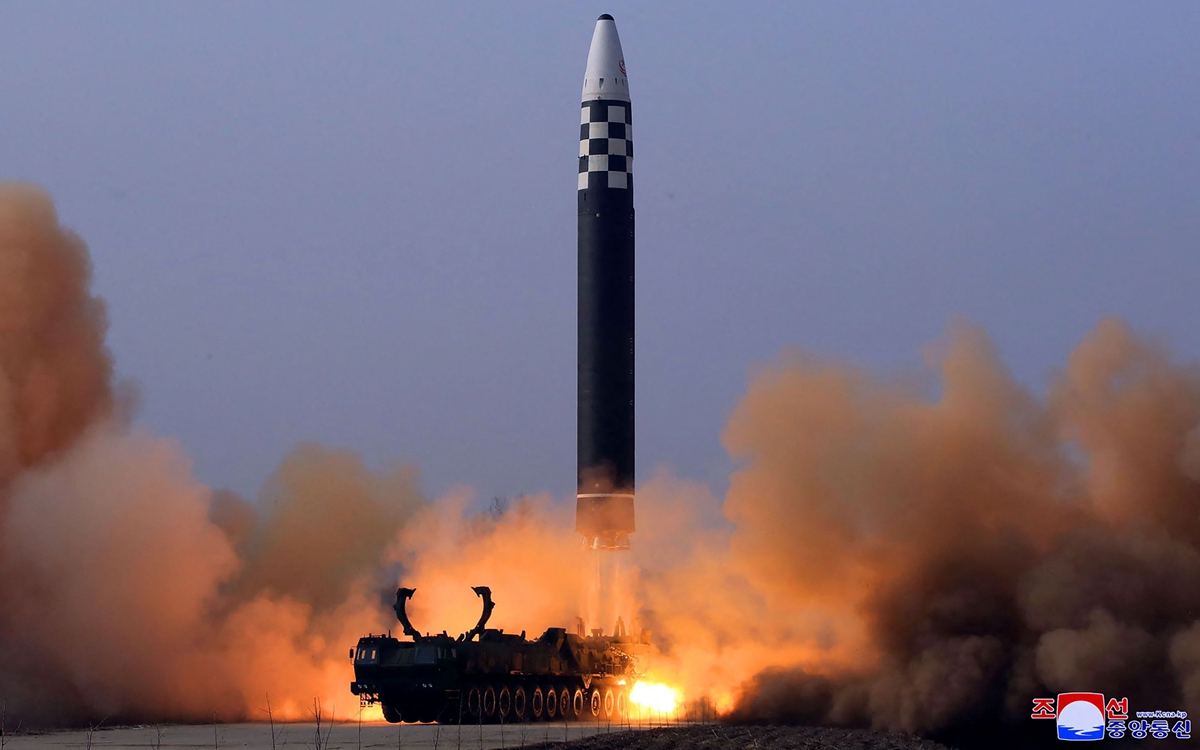
Photo: CFP
Judging from its height, if it flies at a regular trajectory, the distance could be 12,000 kilometers, which showed that North Korea has acquired great capability in developing ICBM, Song Zhongping, a Chinese military expert and TV commentator, told the Global Times on Friday.
Song said North Korea is strengthening its asymmetric military capability to counter the pressure from the US and Japan. Its previous tests of different missiles, including hypersonic missiles, short-range guided missile and medium-range guided missile have different purposes.
The launch tests of Hwasongpho-17 and Hwasongpho-12 displayed that North Korea has the capability to hit the US land and North Korea hopes to use them to pressure the US to return to the negotiation table, Song said.
On Friday, South Korean President-elect Yoon Suk-yeol warned North Korea that it will "gain nothing from provocations." "The Republic of Korea will safeguard freedom and peace by building a stronger security posture," Yoon said, the Yonhap News Agency reported.
The last ICBM test launch by North Korea was reported nearly five years ago - in November 2017. According to South Korean media, North Korea has launched seven missile tests since January this year. In January, KCNA reported a test of hypersonic missile, which aimed at the final verification of overall technical specifications of the developed hypersonic weapon system.
Song noted that North Korea conducted a series of missile tests not only out of political needs but also to acquire a new type of missile. "Moreover, there will be spot check during test launch on previous type of missiles to verify whether it has complete technology."
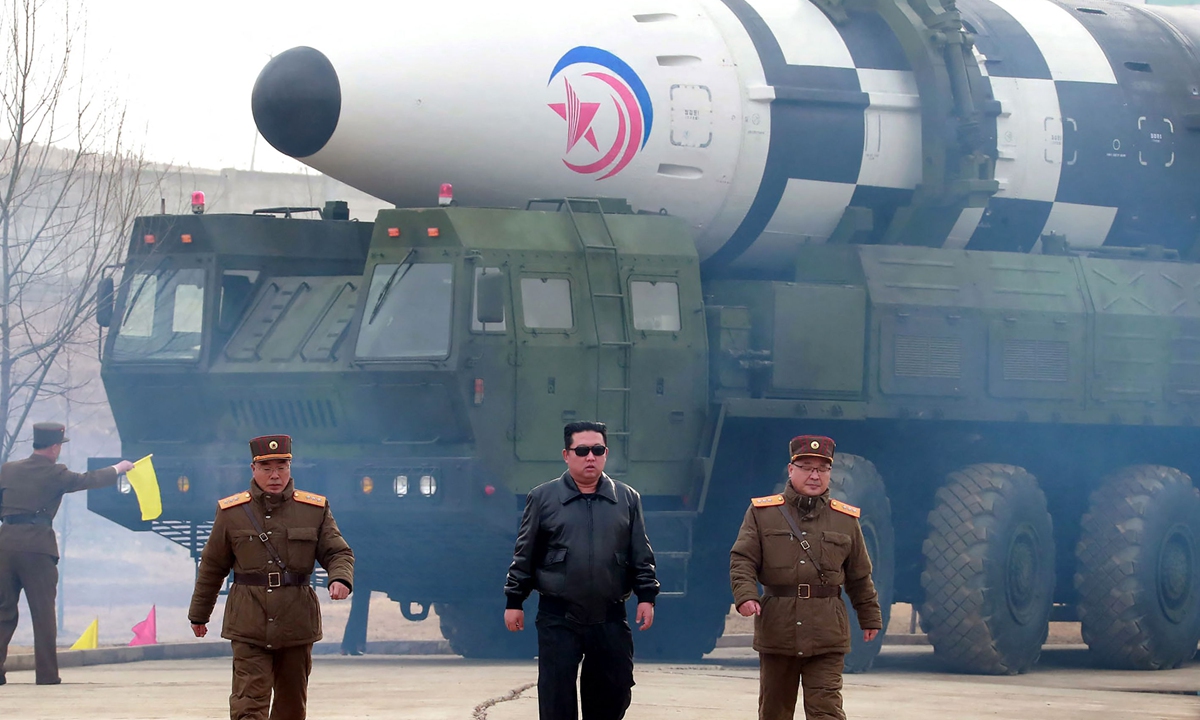
North Korean leader Kim Jong-un walks near a new type of inter-continental ballistic missile, Hwasongpho-17, on March 25, 2022. North Korea tested Hwasongpho-17 the same day, with Kim guiding the overall process of the test launch, North Korean state media KCNA reported. Photo: VCG
Currently, North Korea is coping with shifting events by sticking to one method of developing its military capability despite how the political situations in South Korea and Japan have changed and whether the Biden administration is back to non-engagement strategy, analysts said, adding that North Korea attempts to use asymmetric military capability to deter them and urge them to act prudently.
South Korean opposition candidate Yoon from the conservative People Power Party was recently elected as South Korea's president. During his election campaign, Yoon supported strengthening the alliance with the US and Japan, took a hard line on national security, and pledged to deploy additional units of the US THAAD anti-missile system. Such a deployment had been opposed by North Korea and China over security concerns.
"We must know that the root cause for the current Korean Peninsula problems is the distrust between the US and North Korea and the US' attempt to overturn North Korea. The previous meetings between North Korea and the US did not yield concrete progress and the US has never given up its pressuring on North Korea, let alone making compromises," Song said.
The US, Japan and South Korea require North Korea to achieve denuclearization but at the same time threaten its security. The US has always put its own interests first and is attempting to form an Asian version of NATO in the Asia-Pacific region, leaving no peaceful and stable environment for regional countries, analysts said.

